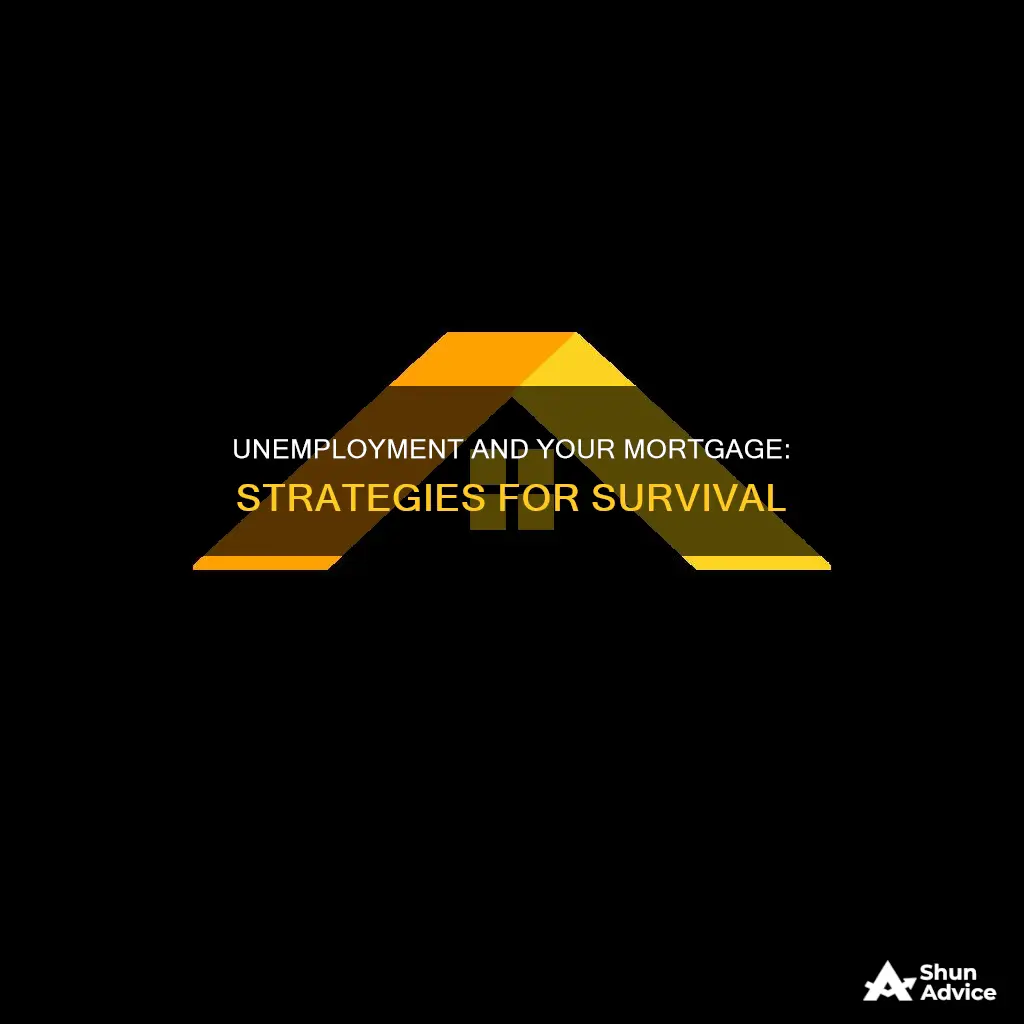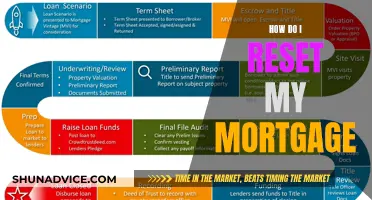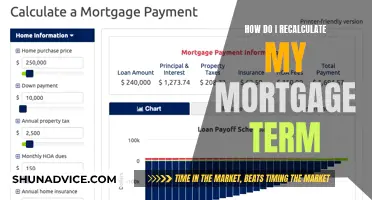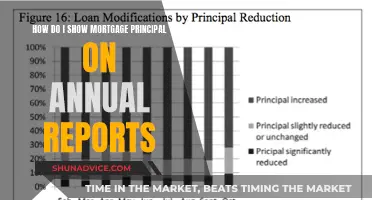
If you're unemployed and looking to save your mortgage, there are a few options available to you. Firstly, it's important to determine what type of mortgage you have and which lender you're dealing with, as different lenders have different requirements and assistance programs. For example, if you have a conventional loan backed by Fannie Mae or Freddie Mac, you'll likely need proof of new employment and future income to refinance. On the other hand, if you have a government-backed mortgage like a VA or FHA loan, you may be able to access Streamline Refinancing, which doesn't require income or employment verification. Additionally, having a co-signer or co-borrower with a stable income and good credit score can increase your chances of approval. While unemployment income is generally not considered qualifying income for a mortgage, it can be averaged over two years and used in rare cases. Ultimately, lenders want to see proof that you can meet your monthly mortgage obligations, so having significant cash reserves or investments can also improve your chances of saving your mortgage while unemployed.
How do I save my mortgage if I'm on unemployment?
| Characteristics | Values |
|---|---|
| Unemployment income | Can be used to qualify for a mortgage if received for at least two years |
| Unemployment benefits | Count as income for a mortgage, but only if received for a long period |
| Lender requirements | May be stricter, e.g. larger cash reserves or a cosigner |
| Mortgage relief options | Forbearance agreements, loan modifications, government programs, lender programs |
| Mortgage unemployment insurance | Can pay your mortgage if laid off or fired without cause |
| Alternative income sources | Contract or gig work, business, rental property, investment accounts |
| Applying for a smaller loan | Requires a bigger down payment or a lower-priced home |
| Contacting the lender | Can help map out a plan and pause the application |
What You'll Learn

Mortgage unemployment insurance
Losing your job can be a stressful experience, and the prospect of not being able to meet mortgage payments can be daunting. Mortgage unemployment insurance can provide peace of mind and help you remain in your home in the event of job loss. This type of insurance will pay your mortgage if you are laid off or fired without cause, preventing foreclosure and giving you the financial stability to focus on your job search.
There are a few things to keep in mind when considering mortgage unemployment insurance. Firstly, you will need to buy the policy before becoming unemployed. Additionally, you must be employed full-time in a relatively stable occupation, and you cannot be self-employed, an independent contractor, a member of the military, a retiree, or someone under 18 or over 60 years old. You may also be subject to a waiting period before the benefits kick in, which can range from 30 to 90 days.
You can generally buy this coverage as a rider on your homeowner's policy or as a supplemental commercial policy through a broker. The payments will be sent directly to your lender, and some policies may only pay benefits for six months or up to a certain ceiling. It's important to carefully review the policy terms regarding eligibility, coverage duration, and waiting periods.
In addition to mortgage unemployment insurance, there are other options to consider if you're struggling to make mortgage payments while unemployed. These include applying for unemployment benefits, contacting your lender to discuss mortgage relief or loan modification options, and exploring government-backed mortgage assistance programs. You can also look into strategies such as showing cash reserves, applying with a cosigner, or providing proof of other income streams when applying for a home loan.
Remember, it's always a good idea to plan ahead and consider your financial options in the event of unexpected job loss. Consult with a financial advisor or insurance expert to discuss your specific circumstances and determine the best course of action for protecting your home and financial stability.
FHA Mortgage Prequalification: What You Need to Know
You may want to see also

Forbearance agreements
During the COVID-19 pandemic, many lenders offered forbearance agreements to borrowers affected by the economic fallout, including those who had lost their jobs. These agreements are typically negotiated between the lender and the borrower and can be done before or after a default on the loan. The terms of the agreement will depend on the specific situation of the borrower but generally include provisions confirming the duties and obligations of both parties, the time period of the forbearance, and the amounts of any delinquent payments.
It is important to note that forbearance agreements are not a permanent solution and that borrowers will eventually have to resume their regular payments, along with any missed or reduced payments during the forbearance period. In some cases, the lender may offer a repayment plan to help the borrower catch up on their missed payments over time.
To initiate a forbearance agreement, borrowers should contact their lender directly and discuss their financial situation. It is important to be proactive and reach out as soon as possible, rather than waiting for the lender to offer a solution. Additionally, borrowers should be aware of any mortgage assistance programs or government initiatives that may provide additional support during their time of unemployment.
Offering Private Mortgages: A Comprehensive Guide for Lenders
You may want to see also

Loan modifications
If you've lost your job and are struggling to make your mortgage payments, a loan modification can be a good option to consider. Loan modifications involve changing the original terms of your mortgage to make your payments more affordable. This could include reducing your interest rate or extending the term of your loan, resulting in lower monthly payments.
To initiate the process of modifying your loan, you should contact your mortgage servicer. You can usually find their contact information on your mortgage bill or statement. It's important to be proactive and reach out to them directly, as mortgage assistance is not automatically provided. During your conversation, you'll need to explain your situation and provide supporting documentation that demonstrates financial hardship, such as proof of job loss or income reduction. Be prepared to gather and submit the necessary paperwork in a timely manner.
It's worth noting that loan modifications are not the only option available to you. Depending on your circumstances, you may also want to consider mortgage forbearance, which allows you to pause your mortgage payments for a set period of time. Additionally, government and lender programs may offer temporary financial assistance to help with overdue or future mortgage payments. Keep in mind that each bank and lender has different programs, so be sure to explore the options available to you.
While loan modifications can provide some relief, they won't eliminate all your debts. If your financial situation is complex or you're considering bankruptcy, it's advisable to consult an attorney or a housing counselor who can help you navigate your options and develop a plan to manage your mortgage payments during this challenging time.
Recording a Mortgage in QuickBooks: A Step-by-Step Guide
You may want to see also

Alternative income sources
If you're unemployed and struggling to meet your mortgage payments, you may be able to access mortgage unemployment insurance, which will pay your mortgage if you are laid off. You can also consider alternative income sources to help cover your mortgage payments. Here are some strategies to explore:
- Passive income: This can be a great way to generate extra cash flow and build financial security. Examples of passive income include creating and selling online courses, renting out property, or earning book royalties or stock dividends.
- Freelancing: Many organizations outsource tasks to freelancers, and you can take on as many projects as you want to match your income needs.
- Upskilling: Consider taking online certification courses in areas like fitness, nutrition, or music. This can open up new earning avenues and career options.
- Consultation: If you have a strong network of clients, you can offer them your consultation services, leveraging your expertise and experience.
- Government and lender programs: Look into mortgage assistance programs, such as mortgage forbearance, loan modification, and foreclosure prevention initiatives. Contact your lender directly to discuss your options and explore the possibility of renegotiating your loan terms.
Understanding Mortgage Debt: Strategies for Homeowners
You may want to see also

Government assistance programs
If you've lost your job and are struggling to make mortgage payments, there are several government assistance programs that can provide support. Here are some options to consider:
Home Affordable Unemployment Program
The Home Affordable Unemployment Program is a federal government initiative that provides financial incentives to lenders who agree to temporarily reduce the mortgage payments of homeowners who have lost their jobs. Under this program, lenders can choose to lower mortgage payments to no more than 31% of unemployed homeowners' gross monthly income. To be eligible, you must meet specific requirements, including being eligible for unemployment benefits, having your primary residence as the mortgaged property, and taking out your mortgage loan before a certain date.
Emergency Mortgage Relief Program
The US Congress passed a financial reform package that includes a $1 billion emergency mortgage relief program for unemployed homeowners. This program is administered by the US Department of Housing and Urban Development and provides assistance to eligible homeowners who are at least three months behind on their mortgages. The aid can come in the form of loans, advances of credit, or direct mortgage relief payments for up to 12 to 24 months, with a maximum of $50,000 in federal loans.
State Unemployment Benefits
Unemployment benefits vary by state, and while they typically replace about 50% of a worker's lost income, they are often capped at a specific dollar amount. Check with your state's Department of Labor to understand the eligibility requirements and benefit amounts for unemployment benefits in your area.
Mortgage Unemployment Insurance
Mortgage unemployment insurance is a type of coverage that will pay your mortgage if you are laid off or fired without cause. This insurance helps prevent your home from going into foreclosure while you search for new employment. You can usually purchase this insurance as a rider on your homeowner's policy or through a broker as a supplemental commercial policy.
California Housing Finance Agency (CAL-HFA) Programs
The California Housing Finance Agency offers several programs to assist struggling homeowners:
- Unemployment Mortgage Assistance: CAL-HFA provides a mortgage payment subsidy to unemployed homeowners facing imminent foreclosure due to short-term financial difficulties.
- Mortgage Reinstatement Assistance Program: This program offers limited financial assistance to reinstate mortgage loans that are in arrears to prevent foreclosures.
- Principal Reduction Program: Assists homeowners who have severe negative equity.
These programs aim to provide financial relief and prevent foreclosures for unemployed homeowners. Be sure to explore the specific eligibility requirements and application processes for each program to determine which ones may be suitable for your situation.
Re-amortizing Your Mortgage: A Guide to Refinancing Your Home Loan
You may want to see also
Frequently asked questions
Here are some options to consider if you are on unemployment and need help with your mortgage payments:
- Contact your mortgage lender to discuss your situation and explore any available relief programs.
- Apply for unemployment benefits, as eligibility and benefit amounts differ by state.
- Consider refinancing options such as Streamline Refinancing, which doesn't require income or employment verification.
- Explore mortgage assistance programs, including those offered by banks like Wells Fargo, Bank of America, and Citigroup, which may offer temporary relief or reduced payments.
- Evaluate your finances and consider your debt-to-income ratio, credit score, and other sources of income to assess your eligibility for a new mortgage or loan modification.
If you're unemployed, you may still have refinancing options available:
- Streamline Refinancing: If you have a government-backed mortgage (FHA, VA, or USDA loan), you may qualify for Streamline Refinancing, which doesn't always require proof of income or employment verification.
- No-income verification mortgages: Some lenders offer non-qualified mortgage (non-QM) programs that consider documents or assets other than tax returns or pay stubs, such as bank statement loans or asset depletion loans.
While it may be more challenging, it is possible to obtain a new mortgage while on unemployment. Here are some key considerations:
- Lenders typically require proof of employment and a steady source of income. However, they may consider other sources of income, such as investment income, rental property income, retirement income, or disability benefits.
- Unemployment income may be considered in rare cases, but it must be averaged over the last two years, and lenders will also require verification of income from a current job in the same field.
- A strong co-signer or co-borrower can significantly improve your chances of obtaining a mortgage by providing additional financial security and meeting lender requirements.
If you're applying for a mortgage while unemployed, lenders will consider various factors:
- Debt-to-income ratio (DTI): Lenders will assess your debt obligations relative to your income to determine your ability to make regular payments.
- Credit score and credit history: A strong credit score and a history free of late payments or delinquent loans can improve your chances of approval.
- Other sources of income: Lenders may consider other reliable sources of income, such as investment income, rental property income, retirement income, or child support payments.
- Cash reserves: Demonstrating significant savings or inheritance can show lenders your ability to meet mortgage obligations, even without a steady income.
To increase your chances of obtaining a mortgage while unemployed, consider the following strategies:
- Maintain timely payments on any existing loans or financial obligations to demonstrate financial responsibility.
- Strengthen your credit score and ensure your credit history is accurate and up-to-date, free of any late payments or delinquencies.
- Explore government programs and relief options, such as the CARES Act, which offers mortgage forbearance for eligible homeowners who have been laid off.
- Consider a co-signer or co-borrower: Adding someone with a stable income, strong credit, and financial responsibility can provide lenders with additional security and improve your chances of approval.







